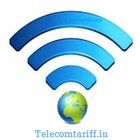Both Wi-Fi and broadband connections have advantages and disadvantages that users should consider to ensure a comfortable browsing experience.
In today's scenario, Internet users often view Wi-Fi and broadband as the same technology. However, it is essential to know that both terms are different in functions and features.
Wi-Fi and broadband are often viewed by Internet users as referring to an active Internet connection, but the actual definition and operation of both terms are different.
In case users don't know the difference between Wi-Fi and broadband connection, they may experience various troubleshooting issues with their connection. Here in this article, we will cover the differences and operation of broadband and Wi-Fi connection.
Speaking of work, wifi works in two steps. First, the wireless transmitter receives data and information from the broadband connection installed in our homes. Second, the transmitter converts the information received and outputs it.
Once the information received by radio waves is transmitted, devices connected via Wi-Fi collect the information. One of the interesting features of Wi-Fi is that it does not require a physical connection between the sender and the recipient. The signal transfer takes place via transmitters.
broadband connection technologies offer users a high-speed Internet connection. The operation of the broadband connection depends on the type of technology selected by Internet users. For example, the latest fiber optic network technology offers high Internet speed with high bandwidth and symmetric speeds.
The fiber optic broadband connection uses transparent glass fibers that have the diameter of human hair. Likewise, cable modem technology uses coaxial cables to provide an Internet connection to users.
Broadband provides users with a handy internet connection. At the opposite pole, Wi-Fi is an easy or medium way of using the broadband connection through an access point. One of the main advantages of Wi-Fi connection is that it allows users to connect to the Internet through multiple devices simultaneously.
Starting with the broadband connection, it connects directly to your devices, giving users faster Internet speeds.
As a security measure, a broadband connection is the safest and most reliable source of Internet connection. Many users claim that broadband connection is expensive, but with unlimited high-speed Internet data packets, broadband connection falls into the economy category and meets users' entertainment and work needs.
In today's scenario, Internet users often view Wi-Fi and broadband as the same technology. However, it is essential to know that both terms are different in functions and features.
Wi-Fi and broadband are often viewed by Internet users as referring to an active Internet connection, but the actual definition and operation of both terms are different.
In case users don't know the difference between Wi-Fi and broadband connection, they may experience various troubleshooting issues with their connection. Here in this article, we will cover the differences and operation of broadband and Wi-Fi connection.
What is Wi-Fi and how does it work?
In simple terms, Wi-Fi (Wireless Fidelity) uses radio signals and frequencies to transfer data and requires no cables to connect. Wi-Fi relies solely on radio waves to provide information. Wi-Fi uses 802.11 wireless Ethernet technologies.Speaking of work, wifi works in two steps. First, the wireless transmitter receives data and information from the broadband connection installed in our homes. Second, the transmitter converts the information received and outputs it.
Once the information received by radio waves is transmitted, devices connected via Wi-Fi collect the information. One of the interesting features of Wi-Fi is that it does not require a physical connection between the sender and the recipient. The signal transfer takes place via transmitters.
What is broadband and how does it work?
Broadband in simple terms is one of the ways that users can connect to the Internet. Now, one of the most important features of a broadband connection is that it offers a high speed Internet connection with and without cables. There are various types and technologies of broadband connections that we discussed earlier.broadband connection technologies offer users a high-speed Internet connection. The operation of the broadband connection depends on the type of technology selected by Internet users. For example, the latest fiber optic network technology offers high Internet speed with high bandwidth and symmetric speeds.
The fiber optic broadband connection uses transparent glass fibers that have the diameter of human hair. Likewise, cable modem technology uses coaxial cables to provide an Internet connection to users.
Difference between Wi-Fi and broadband
Now that we know what Wi-Fi and broadband mean, it will be easier to evaluate the differences between Wi-Fi and broadband. In simple terms, broadband is the means by which users get an Internet connection.Broadband provides users with a handy internet connection. At the opposite pole, Wi-Fi is an easy or medium way of using the broadband connection through an access point. One of the main advantages of Wi-Fi connection is that it allows users to connect to the Internet through multiple devices simultaneously.
Starting with the broadband connection, it connects directly to your devices, giving users faster Internet speeds.
Advantages of the wifi connection
Now we can easily evaluate the advantages of the Wi-Fi connection. One of the main advantages of the Wi-Fi connection is that it is cheaper than a broadband connection. In addition, users can connect to multiple devices simultaneously. Another important advantage of Wi-Fi is convenience. W-Fi devices offer convenient options for users anywhere. Connection mobility is not present in a broadband connection.Advantages of broadband connection
The broadband connection offers ultra-fast Internet speed. Since users get unlimited data packet options on the broadband connection, they don't have to worry about the data limit.As a security measure, a broadband connection is the safest and most reliable source of Internet connection. Many users claim that broadband connection is expensive, but with unlimited high-speed Internet data packets, broadband connection falls into the economy category and meets users' entertainment and work needs.





